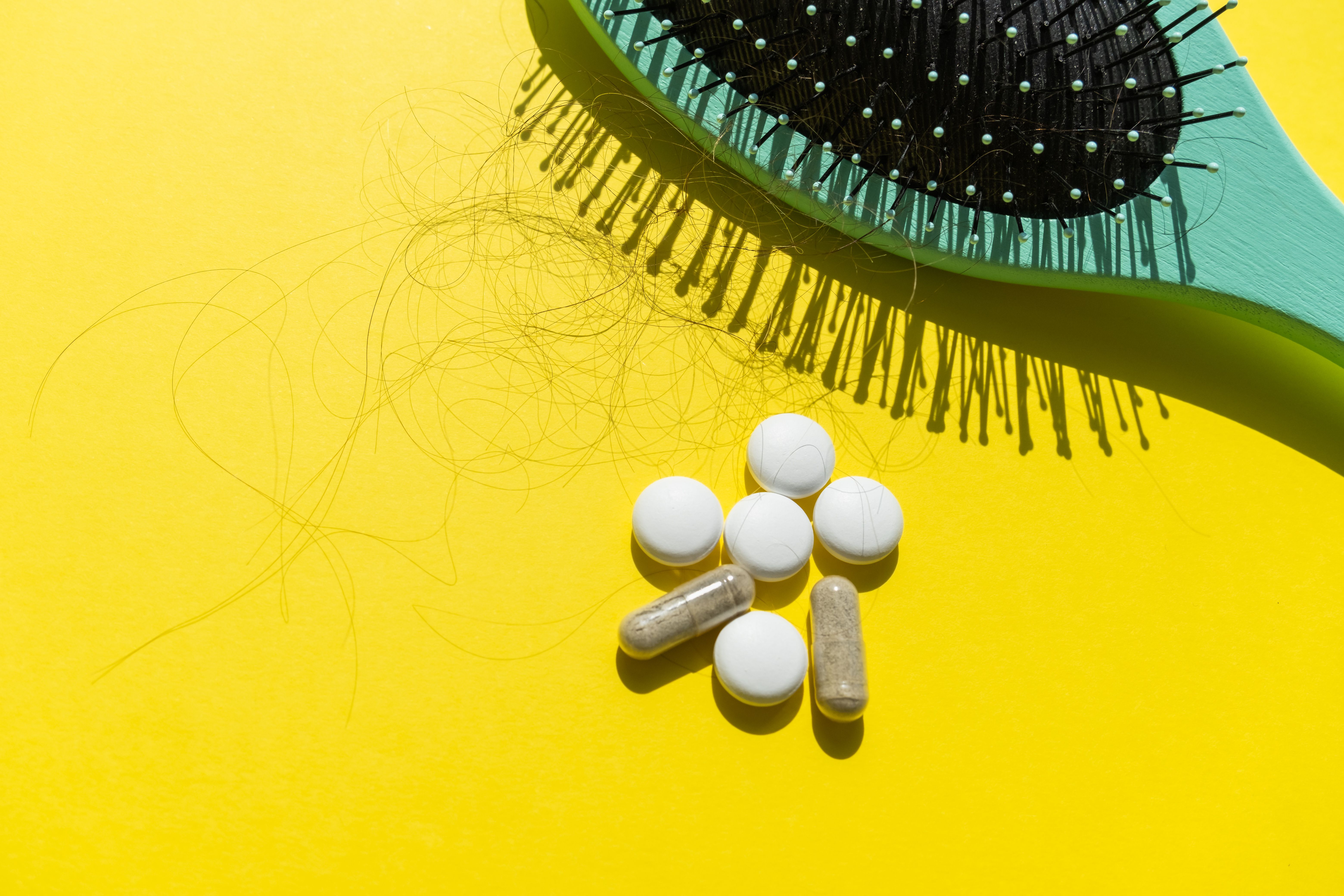- Center on Health Equity & Access
- Clinical
- Health Care Cost
- Health Care Delivery
- Insurance
- Policy
- Technology
- Value-Based Care
Ritlecitinib Effective For Patients With Alopecia Areata, Improves Hair Regrowth
A poster from the 2024 Revolutionizing Alopecia Areata, Vitiligo, and Eczema (RAVE) conference held in Chicago, Illinois presented results of a clinical trial for patients with alopecia areata (AA). The trial used rilecitinib and showed promising results in patients with AA after most patients achieved significant hair regrowth following 15 months of treatment.
Ritlecitinib displayed hair regrowth benefit among patients with AA.| Image Credit: Victoria - stock.adobe.com

This article originally appeared on Dermatology Times®.
The 2024 Revolutionizing Alopecia Areata, Vitiligo, and Eczema (RAVE) conference held in Chicago, Illinois, presented a poster that showed positive results in patients with alopecia areata (AA) that experienced 25% or more hair loss with the use of ritlecitinib. Researchers said after 15 months of ritlecitinib treatment, patients with less than 95% hair loss at baseline reached median Severity of Alopecia Tool (SALT) score of less than 2.4, demonstrating almost complete hair regrowth.1
The oral Janus kinase (JAK) and tyrosine-protein (TEC) family kinase inhibitor showed promising results in patients with AA aged 12 years and older that had over 50% hair loss in the ALLEGRO phase 2b/3 study.2 The ongoing phase 3 study, ALLEGRO-LT, continues to investigate the long-term safety and efficacy of ritlecitinib in patients 12 years and older with AA that experience 25% or more hair loss.
The open-label, multicenter, long-term study (NCT04006457) enrolled roll-over patients from either the ALLEGRO phase 2a study (NCT02974868) or phase 2b/3 study (NCT03732807), or de novo patients 12 years or older with AA with 25% or more scalp hair loss at baseline and had not participated in either study (n = 2). This post hoc analysis only included patients in the de novo cohort.
The researchers behind this analysis reported that all patients received an initial 200-mg 4-week loading dose and 50-mg daily dose of ritlecitinib. Outcomes were measured as median SALT score over time and the proportion of patients with SALT scores of 20 or less (20% or less scalp hair loss) and 10 or less (10% or less scalp hair loss) at month 15.
Patients were separated into 5 categories at baseline depending on the extent of their scalp hair loss. Categories ranged between 25 to less than 50, 50 to less than 75, 75 to less than 90, 90 to less than 95, and 95 to 100.
Overall, 1052 patients were enrolled in ALLEGRO-LT, 447 of whom were included in the de novo cohort. Out of 447 patients, 26.6% had baseline SALT scores between 25 and 50. An additional 16.8% had scores from 50 to 75, 9.2% had scores between 75 and 90, 2.9% had scores from 90 to 95, and 44.5% had scores up to 100.
The researchers noted that patients with baseline SALT scores of 95 or higher had longer mean duration of AA episode (3.47 years) and disease duration (10.86 years) than those with SALT scores less than 50 at baseline (2.53 and 8.79 years, respectively).
A greater proportion of patients with SALT scores of 50 or less, had active shedding at baseline (49.6%) when compared with patients at baseline with SALT scores of 95 or more (11.6%). Across all groups, researchers found that median SALT score improved from baseline through month 15.
At the 15-month mark, the median SALT score showed improvement across all groups. Scores ranged from 1.0 (25% to less than 50% hair loss at baseline) to 2.4 (90% to less than 95% hair loss at baseline). However, the increase to 30.9 in the most severe hair loss group (95% to 100% at baseline) suggests less improvement.
Following 15 months, researchers reported 93%, 87.7%, 88.2%, 83.3%, and 43.9% of patients reached SALT scores of 20 or less.
It was also revealed that 81%, 76.9%, 73.5%, 75.0%, and 33.5% of patients, respectively, achieved SALT score 10 or less.
Ritlecitinib treatment for alopecia areata showed promising results. After 15 months, most patients achieved significant hair regrowth, with a median SALT score below 2.4. Even in the more challenging group with severe hair loss, over a third of patients still saw clinically meaningful improvement (SALT score of 20 or less, 10 or less). This suggests ritlecitinib can be effective for a broad range of AA severity, including those with extensive hair loss.
References:
1. Tziotos C, Sinclair R, Lesiak A, et al. Efficacy of ritlecitinib in patients with alopecia areata by extent of hair loss at baseline: post hoc analysis of the phase 3 long-term ALLEGRO-LT study. Presented at: Revolutionizing Alopecia Areata, Vitiligo, and Eczema; June 8-10, 2024; Chicago, Illinois
2. Hordinsky M, Hebert AA, Gooderham M, et al. Efficacy and safety of ritlecitinib in adolescents with alopecia areata: results from the ALLEGRO phase 2B/3 randomized, double‐blind, placebo‐controlled trial. Ped Dermatol. Published online July 17, 2023. doi:10.1111/pde.15378
The Breakdown: Breast Cancer Research Awareness Day
August 19th 2025Breast cancer is the second most common cancer among women and the second leading cause of cancer-related deaths among women in the US. In light of Breast Cancer Research Awareness Day, The American Journal of Managed Care® breaks down the most recent advancements in breast cancer prevention, screening, and therapies.
Listen
